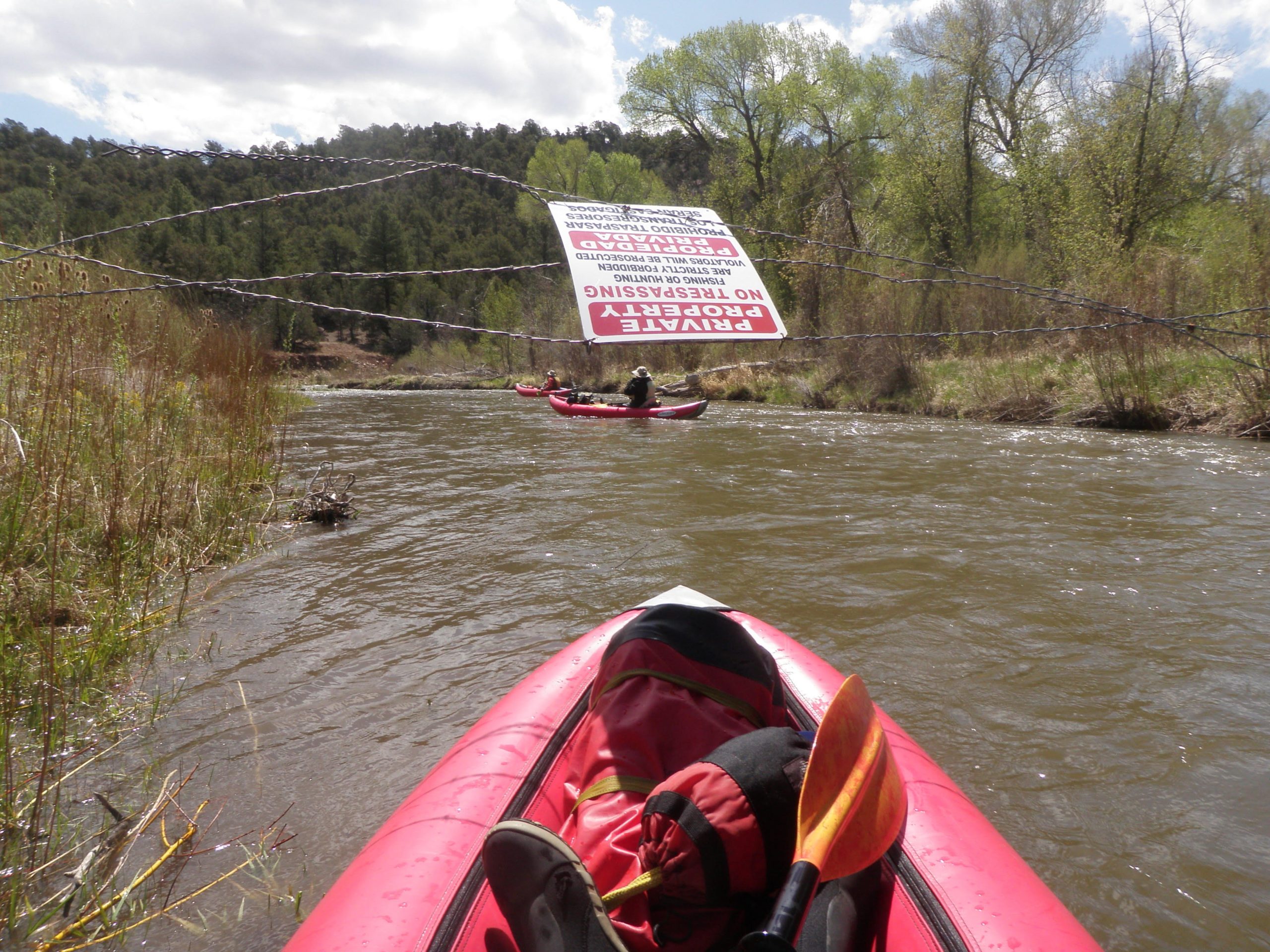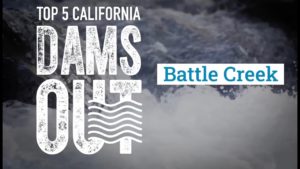New Mexico Supreme Court Written Decision Affirms Public’s Right to Access River

September 1st, 2022 – The New Mexico Supreme Court issued their full written decision reaffirming the longstanding right of the public to recreate on all streams of the state, including walking or wading on the streambeds. The written opinion follows the court’s action in March, when it unanimously threw out a New Mexico State Game Commission rule that purported to allow landowners to block public access to public waters.
In today’s unanimous opinion, the New Mexico Supreme Court made explicit what the state constitution and prior case law implied – that the public has the right to access and recreate on all rivers and streams in the state, regardless of navigability. They clearly state that, in 1945, this court determined that the public has the right to utilize public waters for recreation and fishing and today spelled out that the right includes “the privilege to do such acts as are reasonably necessary to effect the enjoyment of such rights”.
In the 1945 case, the court recognized the public’s right to use streams and streambeds where they run through private property as long as the public doesn’t trespass across private land to access the waters, or trespass from the stream onto private land. The court noted that under the Indian, Spanish and Mexican law that governed New Mexico before statehood, everyone had the right to fish in streams.
In March of 2020, our affiliate club, Adobe Whitewater Club, along with the New Mexico Wildlife Federation and NM Chapter of the Backcountry Hunters and Anglers brought a case against the state’s Game and Fish Commission for promulgating a rule they claimed to be unconstitutional. The rule allowed for private landowners to apply for a certification that a river of stream flowing through their property was non-navigable. If determined so by the commission, landowners are issued signs indicating that the property is private and subject to the rules and laws of trespass and if the public are at risk of being cited for criminal trespass if they set foot on the bed or banks of the waterway.
Since the game commission rule went into effect in 2017, the commission had granted five applications from out-of-state landowners to certify waters as “non-navigable” on New Mexico waterways, including stretches of the Rio Chama and Pecos River. After securing the certifications, landowners denied public access to the waters, in some instances placing fences across the rivers that prevent downstream boat passage.
“Walking and wading on the privately owned beds beneath public water is reasonably necessary for the enjoyment of many forms of fishing and recreation,” the opinion states. “Having said that, we stress that the public may neither trespass on privately owned land to access public water, nor trespass on privately owned land from public water.”
The ruling states that “the scope of the public’s easement includes only such use as is reasonably necessary to the utilization of the water itself and any use of the beds and banks must be of minimal impact.” Click HERE to read the opinion.
Scott Carpenter, president of the Adobe Whitewater Club of New Mexico, said Thursday that New Mexico paddlers love the state’s rivers and streams.
“We are grateful to live in our beloved multicultural state and to paddle its beautiful rivers,” Carpenter said. “The court unanimously affirmed the public’s constitutional stream access rights, derived from rules and principles that long preceded statehood.”
Carpenter expressed thanks to Santa Fe lawyers Gene Gallegos and Seth Cohen for their representation of the groups in the legal challenge. He also thanked partners and supporters including American Whitewater, the New Mexico River Outfitters Association, New Mexico Wild, the New Mexico Paddlers Coalition, Senators Tom Udall and Martin Heinrich, and Joanna Prukop, former State Game Commission chair.
“We stand against trespass and littering,” Carpenter said. “If a river needs a clean-up, let us know at adobewhitewater.org. We will organize a clean-up.“
Joel Gay, former chairman and policy advisor with the New Mexico Chapter of Backcountry Hunters & Anglers, said the group is happy to see the court ruling, but said it shouldn’t come as a surprise to either anglers or landowners.
“In 1945, the New Mexico Supreme Court issued much the same opinion — that all waters in our state are owned by the public and may be used for fishing, boating and other recreation provided the public doesn’t trespass over private property to enter or exit the stream,” Gay said. “New Mexicans have always had this right of access.”
John Crenshaw, board president of the NMWF, said the court ruling unequivocally reconfirms the historically well-established right for the public to recreate in public waters, including the streambeds and banks of waters flowing through private land.
Crenshaw said now’s the time for everyone, – fishers, boaters and other recreationists, landowners, outfitters, the State Game Commission, Department of Game and Fish, governor and legislators – to acknowledge that reality and transition into it.
“Going forward, we have to evaluate existing statutes, rules and policies to see what’s applicable and where new ones may be needed to create a workable system that protects both public and private rights,” Crenshaw said. “The NMWF looks forward to engaging in that conversation with stakeholders across the spectrum of the issue, and is grateful to the NM Supreme Court for the clarity of its decision.”
The rivers of New Mexico are unparalleled nationwide. The state constitution and legal precedent have always provided access to rivers and streams for recreation and fishing since statehood. The decision from the Supreme Court today explicitly protects those longstanding rights which provide for the flourishing, growing and inclusive outdoor recreation community. We are so proud of our affiliate club, Adobe Whitewater, and the other petitioners on the case. These dedicated paddlers, anglers and outdoors people have fought tirelessly to protect New Mexican’s inherent rights.
By Hattie Johnson
This post originally appeared on www.americanwhitewater.org.


